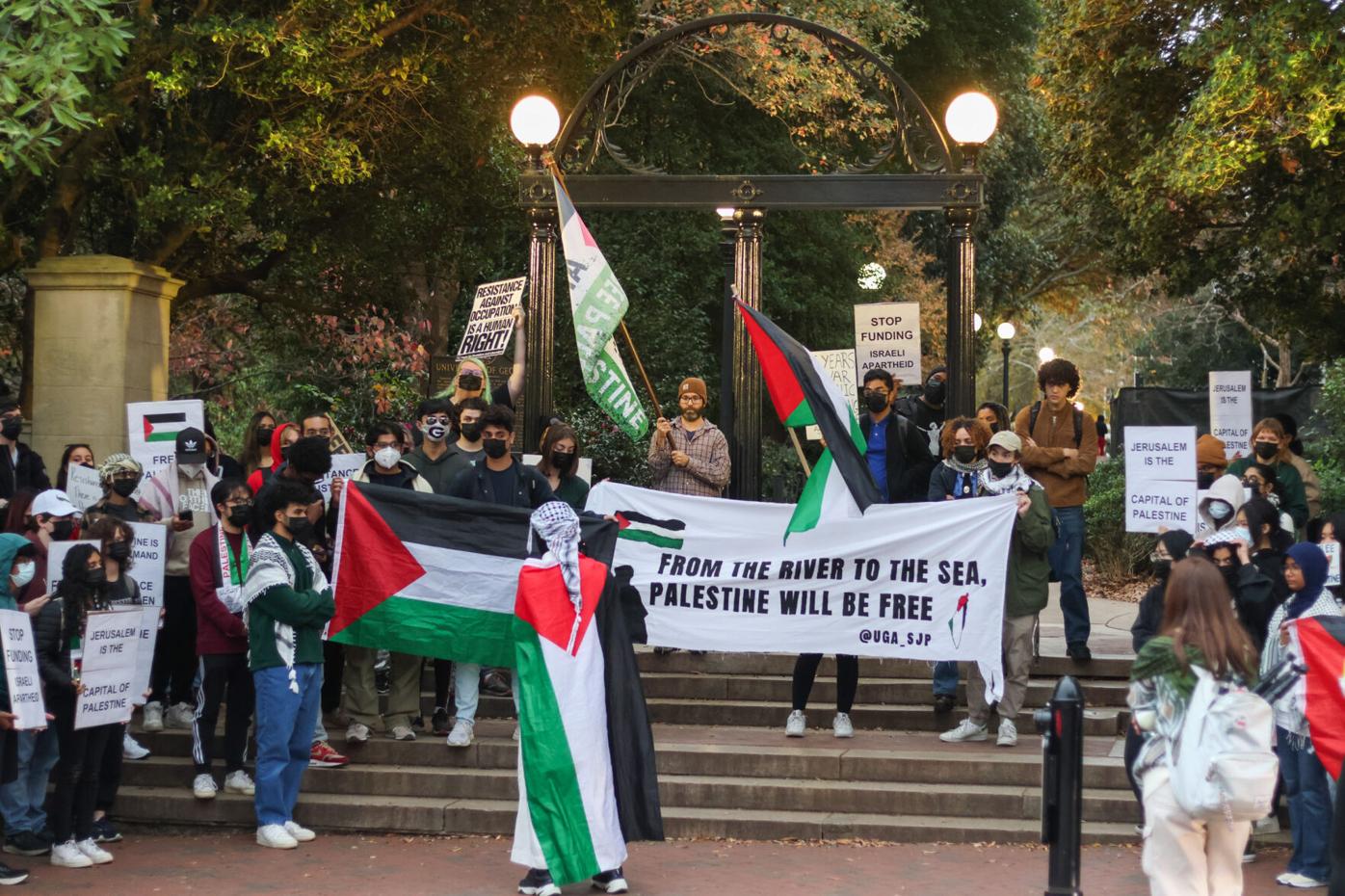Interview on Pro-Palestinian Protest in the USA
Nowadays, the most significant debate topic of human rights-related activism circles is probably the Palestinian-Israeli Conflict. Israeli Government and military forces are accused of genocide and war crimes. In most countries, citizens, and specifically students, are organizing some protests against the genocide. Students in the United States of America (USA) have the protests found the most places in the news for several reasons including police violence and administrative backlash against student-protestors. To be informed about the issue in detail, we interviewed a student from the University of Georgia whose name is Austin.
Q.1 | Firstly, we want to ask you what the students advocate for specifically at your university. We know that some American universities have some agreements with Israeli bodies, like the military and Ministry of Defense, academia. Thus, students at those universities advocate for the termination of the agreements. Is this the same for you? Can you give us some details about the specific goals of the protests?
UGA’s chapter of the SJP demands for the same ideas as the national organization. Mainly for Solidarity with impacted students, Protection of free speech on campus, and Disclosure & Divestment of the University’s investment in firms complicit in the genocide. Specific demands can be found on Instagram at @gastudents4divestment.
Q.2 | How have students in the USA organized to protest nation-wide? Is it a planned campaign in which all the protests have common political positioning? Or did the attack by the police on the protesting student at some universities like Columbia University trigger something unexpected?
The National Students for Justice in Palestine movement have individual chapters across the United States. This organization guides chapters by providing resources to university students to help their advocacy for Palestine. Many Columbia University protesters are members of their university’s chapter of the SJP. Protests at UGA have been frequent since October, but Columbia has inspired many universities to start encampments along with other protest strategies that had been previously used, like marches
Q.3 | We know that the protests at some universities had been subjected to police violence. Is the University of Georgia one of them? And why did the administration offices at your university and the others take the action of calling the police? Was it a decision of the President? Did other administrative bodies participate in the decision making? Were there any reasons for preventing the protests of the students?
On April 29, sixteen students were arrested by my university’s police department (UGAPD), which is state funded like my university. These police follow University policy as well as state law. The University argued that these students were trespassing and breaking policy by forming encampments and occupying an area not allowed for protest. These students were also suspended from the university without a chance to request a hearing to argue their suspension.
Q.4 | One of the arguments used against the pro-Palestinian protest is that there are some antisemitic incidents in the protests. We have read some news about the protesting students being accused of antisemitism by some members of congress/sanators, some Jewish students and faculty in the USA, and Israeli politicians. Have you detect any hate crime/speech targeted to the Jewish people?
Some Jewish students at UGA have felt increased anti-Semitism since October 7, however, I don’t believe the protests engage in anything like this. Most arguments against protests at UGA are due to university policy limiting protest and free speech.
Q.5 | What is the political positioning of the general public and university students in the USA about the Palestinian-Israeli conflict? Is the general opinion conflicting with the governing bodies?
Opinions on the US on the conflict are extremely divided. The United States has always been an ally of Israel, seen now by Joe Biden’s support of Israel as a Democrat. Many Americans, regardless of political affiliation side with Israel for many reasons, whether Zionism or general support of US allies. Younger people tend to favor the Free Palestine movement, while older Americans favor Israel.
Q.6 | Anti-Muslim racism and antisemitism in the USA are concerns. In addition, Israeli-Palestinian Conflict continues to fuel the anti-Muslim and anti-Jewish sentiments. Have you tried to develop some strategies to fight discrimination against both communities on your campuses?
Both of these have been problems in the South and at UGA for a very long time. UGA is predominantly white and Christian, which exacerbates discrimination. Jewish and Muslim organizations on campus have tried to increase awareness of discrimination. Advocacy for better university polices to protect against hate-speech and increased presence on campus and in the community are working to fight discrimination.

